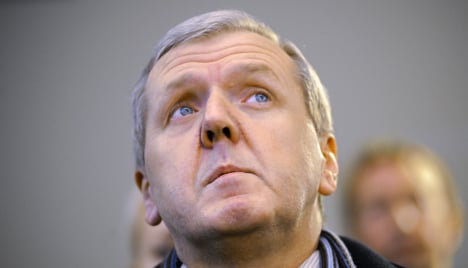Ten investigators are still working to solve the crime, having reviewed some 3,000 clues and interviewed 2,100 people. But they have yet to discover who the perpetrator of the December 13, 2008 crime may have been.
According to investigators they have looked through “everything conceivable” to clarify the mysterious case.
Mannichl, known to be tough on far-right extremists in his city, was hospitalised until just before Christmas last year with critical injuries after he said he was stabbed on his front porch by a skinhead. He said that the man said something along the lines of, “Greetings from the national resistance,” and then, “You leftist pig cop, you won’t trample on the graves of our comrades anymore,” before stabbing Mannichl in the stomach with a 12-centimetre knife.
Media reports have speculated that police had found discrepancies in the 52-year-old’s claim, reporting that leads pointed to a domestic dispute instead. But on Monday investigators said there were no clues to suggest the perpetrator was from his personal life or planned by an organisation.
Officers are offering a €20,000 reward for leads to their suspect, described as a 25 to 30-year-old suspect about 1.9 metres tall with a muscular build. He is believed to have a snake tattoo on his neck.




 Please whitelist us to continue reading.
Please whitelist us to continue reading.
Member comments